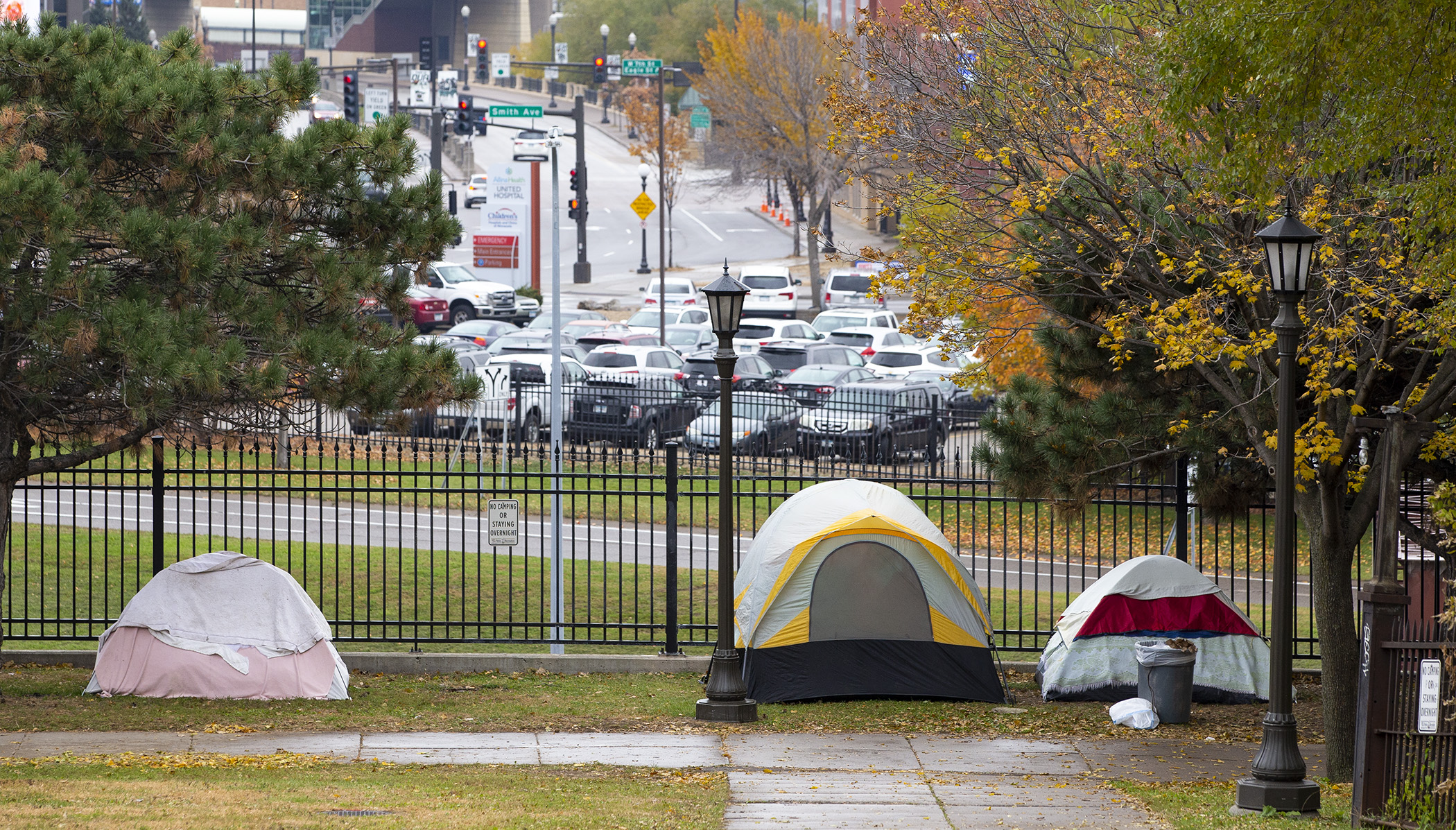Long-term boost to emergency services funding another proposal aimed at tackling MN homelessness crisis

While the pandemic has shone a light on the importance of providing shelter and services to homeless Minnesotans, homelessness is not a new problem. And it will not go away with the end of the pandemic, Rep. Michael Howard (DFL-Richfield) said Thursday.
“We were facing a crisis before COVID began,” he told the House Human Services Finance and Policy Committee.
Howard sponsors HF315, which would appropriate $7.5 million in both fiscal years 2022 and 2023 for emergency services grants, then add this amount to base funding moving forward.
It was laid over for possible inclusion in an omnibus bill. A companion, SF455, is sponsored by Sen. Paul Utke (R-Park Rapids) and awaits action by the Senate Health and Human Services Finance and Policy Committee.
“This bill would provide stable funding in the long term to address our … homelessness needs,” Howard said.
Emergency services grants are available to help organizations improve existing shelters, establish new emergency housing, meet the operating and maintenance costs of shelters, and provide essential services to the people they serve.
When it can’t be prevented, homelessness should be a brief, one-time experience, but that’s not possible to achieve without public support, said Christine Bridgeman, program manager for Catholic Charities’ Higher Ground Minneapolis Shelter.
The shelter has been serving more people who are elderly, have a disability, or have mental health needs that are becoming more difficult to support. Those people can all benefit from being connected to the right programs, health care, and support networks, she said.
But it’s already difficult work, that will only become more difficult in the wake of the pandemic as more people face unemployment, limited housing options, and health problems, Bridgeman said.
Related Articles
Search Session Daily
Advanced Search OptionsPriority Dailies
Speaker Emerita Melissa Hortman, husband killed in attack
By HPIS Staff House Speaker Emerita Melissa Hortman (DFL-Brooklyn Park) and her husband, Mark, were fatally shot in their home early Saturday morning.
Gov. Tim Walz announced the news dur...
House Speaker Emerita Melissa Hortman (DFL-Brooklyn Park) and her husband, Mark, were fatally shot in their home early Saturday morning.
Gov. Tim Walz announced the news dur...
Lawmakers deliver budget bills to governor's desk in one-day special session
By Mike Cook About that talk of needing all 21 hours left in a legislative day to complete a special session?
House members were more than up to the challenge Monday. Beginning at 10 a.m...
About that talk of needing all 21 hours left in a legislative day to complete a special session?
House members were more than up to the challenge Monday. Beginning at 10 a.m...